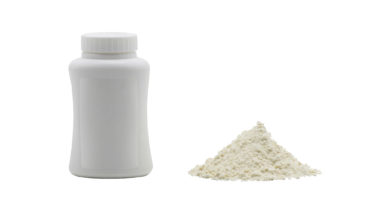Top Class Actions’s website and social media posts use affiliate links. If you make a purchase using such links, we may receive a commission, but it will not result in any additional charges to you. Please review our Affiliate Link Disclosure for more information.
Pharmaceutical manufacturer Eisai Inc. began pulling name-brand weight-loss drug Belviq and Belviq XR, the extended-release version off the market in the U.S. in February 2020 after a clinical trial of the medication noted a higher instance of cancer in patients taking the drug.
The move came in response to a request from the U.S. Food and Drug Administration (FDA) to have Belviq withdrawn.
How Was Belviq FDA Approved?
Belviq was designed to support weight loss in many of the 40 percent of all Americans the Centers for Disease Control and Prevention say are overweight. Eisai brought Belviq to the U.S. market as part of its “human health care mission and with the goal of bringing new options to patients who are obese or overweight with weight-related medical conditions,” the company said in a statement.
FDA officials gave a contingent approval to the drug, known generically as lorcaserin, in June 2012. That approval required the manufacturer to conduct a randomized, double-blind and placebo-controlled clinical trial on Belviq to assess its cardiovascular effects.
The study was done over a five-year period, spanned eight countries, including the U.S., and included 12,000 men and women who either had cardiovascular disease or were at high risk for it, according to a summary of the trial on the U.S. National Library of Medicine’s website.
When complete, the research indicated lorcaserin did contribute to sustained weight loss without creating a higher risk of heart problems, but more people who took Belviq in the trial were diagnosed with cancer during the study than those who took a placebo. Specifically, 7.7 percent of patients taking the weight-loss drug were found to have cancer, compared to 7.1 percent of those who took the placebo.
Several types of cancers were diagnosed in the patients taking Belviq, including pancreatic, colorectal and lung cancer, the FDA reported.
In January 2020, the FDA made its first comments on the findings, noting the possible link between lorcaserin and cancer.
“We cannot conclude that lorcaserin contributes to the cancer risk,” the administration’s statement said, but officials “wanted to make the public aware of this potential risk.”
Regulators were still evaluating the trial results and working out their final recommendations, according to an article on the consumer medical website WebMD.
Despite the FDA’s recall of both Belviq and Belviq XR, Eisai still maintains they are safe. Eisai Inc. is a Japanese pharmaceutical company that argues the drug’s benefits outweigh its risks.
Specific Clinical Trial Outcomes
The clinical trial of 12,000 patients was called the CAMELLIA-TIMI 61 trial. According to MedPage Today, researchers found 520 cancers in the group taking Belviq, but only 470 cancers in the patients who were taking a placebo.
When researchers further analyzed the data, 20 of those on Belviq had multiple primary tumors identified compared to only eight of those who were on the placebo.
Thirty-four people on Belviq demonstrated metastatic disease, or cancer that has spread, compared to 19 on the placebo.
These data sets were made available by Dr. John Sharretts from the FDA’s Office Division of Metabolism and Endocrinology Products, and several of his colleagues.
When a follow-up was done at 3.3 years, the researchers saw 52 Belviq patients had died of cancer; 33 of those on the placebo died of cancer in that same time frame, the New England Journal of Medicine reported, according to MedPage Today.
Researchers wrote the increased incidence of cancer-related deaths in the patients taking Belviq was “troubling.”
“Although we cannot exclude the possibility that the observed imbalances are due to chance, conducting another trial to confirm or refute the signal isn’t feasible,” Sharretts and fellow scientists concluded.
Researchers also noted that the increased risk of a number of different cancers that appeared linked to Belviq in the clinical study appeared as well in non-clinical studies. In addition, researchers thought there may be a higher risk of cancer among patients who took Belviq over a longer period of time.
How is Eisai Responding to the FDA Requests?
Ultimately, the FDA decided the potential cancer risks of lorcaserin outweigh its benefits and on Feb. 13 asked Eisai to voluntarily withdraw Belviq and Belviq XR from the market.
Although Eisai Inc. says it disagrees with the FDA’s assessment and decision to have Belviq recalled — and insists Belviq has “a positive benefit-risk profile in the patient population for which they are indicated” — the company announced that same day it was pulling the weight-loss medication and discontinuing its sale in the U.S.
In its official statement announcing the withdrawal, the drug manufacturer said that before and after Belviq gained the conditional approval from the FDA, more than 30 clinical trials were conducted on the weight-loss drug with 22,000 patients over 15 years. Because of that, the company still believes Belviq can be of value to patients who are obese or overweight with weight-related medical conditions and it is “having discussions with its global distribution partners regarding this issue.”
Weight Loss Drugs
ABC News dug into the benefits of Belviq in a February 2020 report. Those asking why Belviq was recalled may remember its start. When the drug appeared on the market, it seemed like a promising option for those looking for a weight-loss drug. The excitement around the drug’s release was highlighted by the fact it was released end of a dry spell in the production of new weight-loss medication.
A number of other new weight-loss drugs were released along with Belviq. One drug released around the same time, Qsymia, cost less and appeared to yield more weight loss than Belviq. However, other benefits of Belviq did help it stand out from the crowd.
In particular, Belviq touted fewer side effects than its competitors. ABC News illustrated this difference by comparing Belviq with Contrave, approved in 2014. Contrave was accompanied with a warning that its use could be linked with an increase in suicidal thoughts and suicide attempts. This risk is one that was previously expressed in connection with older diet drugs, even in the case of other drugs that had been on the market for a long time. Older drugs also were connected with possible damage to the user’s heart valves, ABC News reported.
In contrast, Belviq’s lower risk of side effects like these made it a strong contender against other weight-loss drugs, both new and old.
Belviq Recall: What to Do With Pre-Bought Belviq Pills

Once it moved to have Belviq recalled, the FDA urged consumers who were taking it to stop immediately and to consult their health care providers about other weight-loss medications and treatments and weight-loss programs.
The FDA also recommended patients safely get rid of any remaining Belviq pills. Ideally, unused medication should be disposed of at a drug “take back” site. The FDA maintains a list of permanent take-back locations and listings for periodic take-back events on its website.
The U.S. Drug Enforcement Administration (DEA) hosts a National Prescription Drug Take-Back Day event each year and also maintains a list of permanent take-back locations nationwide. The disposal service is free and anonymous.
If taking medication to a drop-off location is not an option, patients can safely dispose of Belviq at home, according to the FDA, by mixing the unused pills with dirt, cat litter or used coffee grounds without crushing the pills. The mixture should be placed in a container or sealed bag and disposed of with household garbage.
Consumers should also be careful to strip their prescription pill bottles of all personal information printed on their labels or packaging before throwing them away or recycling them.
If you developed complications after taking Belviq, you may be eligible to take legal action. An experienced Belviq attorney can help evaluate your case and eligibility.
Join A Belviq Cancer Side Effects Lawsuit Investigation
If you took Belviq or Belviq XR and developed cancer, you may be able to join a FREE Belviq cancer class action lawsuit investigation. Fill out the form on this page for more information.
ATTORNEY ADVERTISING
Top Class Actions is a Proud Member of the American Bar Association
LEGAL INFORMATION IS NOT LEGAL ADVICE
Top Class Actions Legal Statement
©2008 – 2024 Top Class Actions® LLC
Various Trademarks held by their respective owners
This website is not intended for viewing or usage by European Union citizens.
Get Help – It’s Free
Join A Belviq Cancer Side Effects Lawsuit Investigation
If you qualify, an attorney will contact you to discuss the details of your potential case at no charge to you.
PLEASE NOTE: If you want to participate in this investigation, it is imperative that you reply to the law firm if they call or email you. Failing to do so may result in you not getting signed up as a client or getting you dropped as a client.













